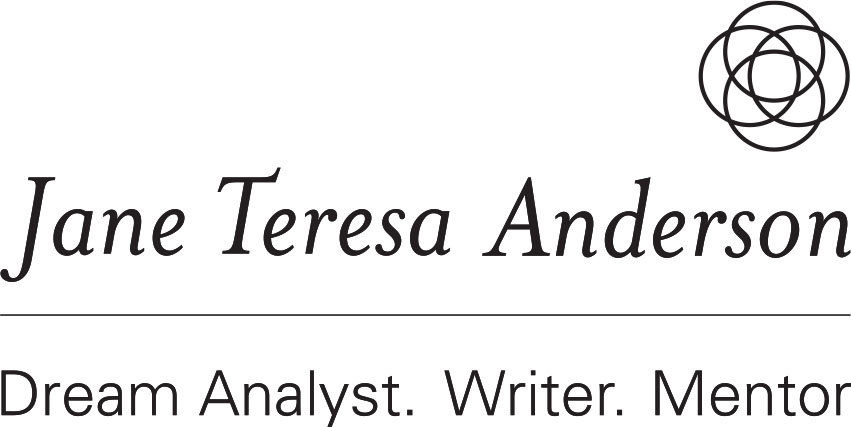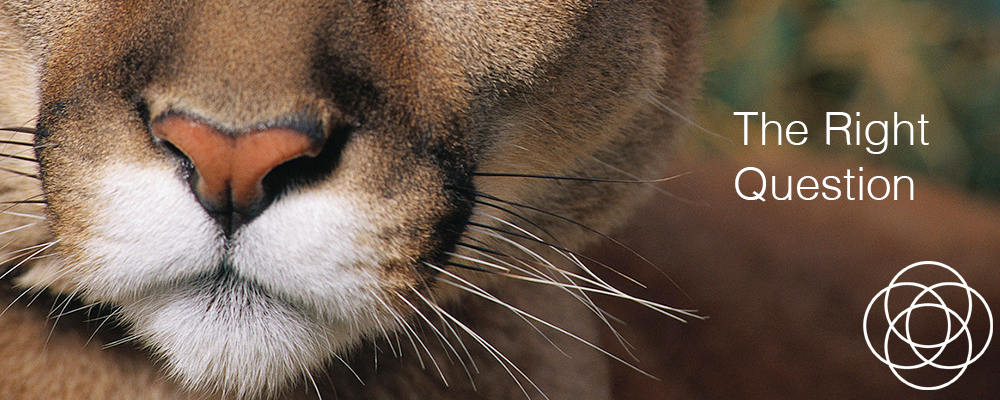Are you looking to your dreams for answers to important questions? Do you go to bed hoping for a dream that will explain all and show you the best way forward? Are you looking for solutions to personal issues, guidance on career, or a bankable genius eureka to boost your fortune?
The dreaming mind offers all these possibilities, IF you’re looking at your dream from the right angle. And what is the right angle? It starts with the right question. The right question goes straight to the point and delivers the right answer, the best solution, the breakthrough.
Most dreams have a storyline, comprising four parts.
The first part of a dream is the opening. It’s the ‘Once upon a time …’ or ‘I was walking along …’. This is the part of the dream that sets the scene.
The second part of a dream is often a problem or question. It’s the ‘A hungry lion was chasing me …’ or ‘I couldn’t find my way …’ or ‘My car was missing ..’. Each of these can be seen as a problem or a question. For example, you might see the problem as the presence of a hungry lion, or you might see the question as, ‘How can I escape being eaten by the hungry lion?’
The third part of a dream is usually where your dreaming brain tries to work out a solution. In the lion example, you might try running faster, climbing higher, jumping into water or hiding. This part of a dream is usually the longest, as various approaches to solving the problem or finding an answer to the question are tried out.
Many dreams end here, without a part four, in a never-ending search for a solution. These are unresolved dreams. You wake up from these with a sense of the unfinished, perhaps feeling frustrated as if you’ve been working hard all night going round in circles getting nowhere, the hungry lion still hot on your tail.
The fourth part of a dream – for those dreams that find a solution – is the resolution, the ending. Your dream may have a happy ending (you are rescued from the lion) or an unhappy ending (your rescuer is eaten by the lion, even though you are saved).
Before reading further, think of a couple of dreams you have had recently, and see if you can break them down into these three or four parts. See if you can identify the problem or question in each dream. Write the problem or question down.
So far, so good. Thinking logically, all you need to do is identify the problem or question in part two of your dream and ask yourself how this relates to your waking life. For example, you might see the question, ‘How can I escape being eaten by the hungry lion?’ as being like ‘How can I escape the feeling that everyone wants more from me than I can give – that everyone wants a part of me?’ Once you’ve identified the waking life problem or question your dream is processing, you know that the rest of the dream is concerned with finding a solution to your problem, an answer to your question. Isn’t that wonderful!
Well, yes. It’s a wonderful beginning. Remember that dreams never tell you what to do. They tell you how things ARE. Your dreams are a result of your dreaming brain processing your experiences of the last 24-48 hours, so what you get from looking at a dream is an insight into how your brain processes your life. THIS is wonderful!
When you interpret a dream, you get to understand how you process your life experiences. You get to understand why your life is the way it is. If your lion dream features you running away, never finding an escape, then this is how you are processing your life – you are running away, never finding an escape from the feeling that everyone wants more from you than you can give. If your dream ends with your rescuer being killed, you get to understand that your brain sees a solution where you could ‘kill off’ your tendency to rescue people. Your dreaming brain has solved the problem of you wearing yourself out, eating yourself away with rescuing other people only to still feel pursued and drained. Whether or not you take this action when you wake up is your decision. Your dream does not tell you to do this, it simply indicates that your brain is looking at this as a possible solution and also reveals that this would bring up some unhappiness for you to deal with.
Most often your dreams travel old ground, trying the same old approaches because your brain (and your unconscious mind) is programmed this way by all your past experiences. The brain usually chooses the old way over the new. Occasionally, though, the brain will surprise you with a breakthrough – a new way of processing the same old stuff, a new creative solution, perhaps even that bankable eureka.
Your dream tells it like it is. It tells you about you and how you brain works today. You then make your decisions based on that message.
So, here’s the big thing
Knowing that every dream reflects how your brain is processing your life, you must question the question your dream poses! The question in part two of your dream is just as much a result of the way your dream processes your life as the rest of the dream. You ‘see’ a problem in your life and your dreaming brain brings up this ‘problem’, exactly as you see it, because that’s its job. Its job is to process your life experiences of the last 24-48 hours, and one of your life experiences in that last 24-48 hours was the ‘problem’ exactly as you experienced – and decided to see – it.
Can you see the power of questioning your dream question? When you question your dream question you question how you normally question your life. You question why you see certain things as problems. You question why you see a problem one way instead, perhaps, of from a more insightful angle.
Here’s what to do
Take the question you have identified in your dream, and see how many other questions you can get out of it. Like this:
How can I escape being eaten by the hungry lion?
How can I stop the hungry lion chasing me?
Why am I running away from the hungry lion?
How do I know the lion is hungry?
Is the lion hungry?
Why is the lion hungry?
What’s a lion’s favourite food?
Why is the lion chasing me and not someone else?
Why hasn’t the lion eaten before now?
Have I got some other food I can give the lion?
Can I tell the lion where to get better food?
Can the lion do something for me in exchange for better food?
I’m sure you can add more to this list!
Simply doing this for the question in part two of your dream may be enlightening enough. It reveals many ways to look at a situation, reminding you that some angles or perspectives look more problematic than others. It may help you to see that you’re not asking the best question. Reframing your situation and asking a different question results in a different answer.
Consider the question, ‘Is the lion hungry?’ Maybe you’ve misread a situation as threatening and you’re spending all your energy trying to escape it, and all the while the situation is not at all threatening. Maybe that lion is running after you because he needs to tell you something helpful. Like you’re running towards a very hungry tiger!
Consider the question, ‘Why is the lion chasing me and not someone else?’ Thinking about this you might realise that you tend to set yourself up as an easy target, too willing to let others have a piece of you maybe.
Consider the question, ‘Why hasn’t the lion eaten before now?’ Contemplating this, you might be baffled. Lion are supposed to be strong, they get what they want – so this lion must have lost its strength, lost its ability to be king of the jungle. You might realise that you have been forgetting to feed and nurture your inner strength. You may see that you have starved your inner strength, and that’s why you feel too weak to stand up to other people’s demands on your time and energy.
Use your dream interpretation skills to understand your dream symbols (lion, hungry …) and see how they relate to your life. Look at your dream to understand how you are currently seeing and processing your life.
Then, before looking for an answer to your waking life problem in your dream, look for the question. When you’ve found the question, reframe it many ways.
Think about those reframed questions, and answer them. Along the way, you’ll discover the key question – the right question – that shifts your perspective and unlocks the best answer.
[Copyright Jane Teresa Anderson, October 2008. First published as a Dream Sight article.]


2 comments on “The right question”